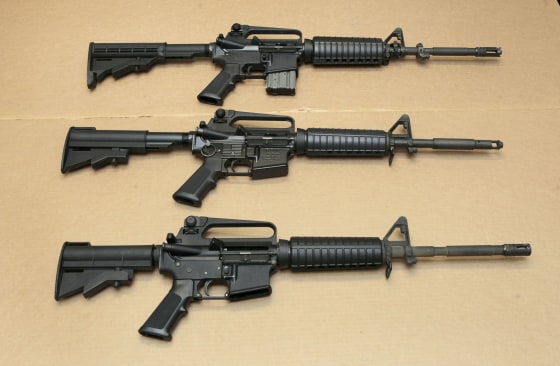The U.S. Supreme Court declined Monday to hear a challenge to Connecticut's ban on semi-automatic rifles commonly called assault weapons, acting a little over week after the mass shooting in Orlando was carried with such a firearm.
Gov. Dan Malloy signed the law in April 2013. Four months earlier, a shooting rampage at Sandy Hook Elementary School killed 20 children and six teachers. The law expanded an existing ban by outlawing dozens of rifle models than can hold high-capacity ammunition magazines or clips.
Related: Appeals Court's Ruling on Concealed Gun Carry Exposes Stark Divide
The new restriction was focused on "firearms that are owned by a small percentage of gun owners and are disproportionately used in gun crime, particularly the most heinous forms of gun violence," said Connecticut's attorney general, George Jepsen.
When used in crimes, the rifles "result in more shots being fired, more people being shot, and more gun death."
The challengers, who lost in the lower courts, said the ban violates the Second Amendment right to own a gun. If it did anything to cut down on gun crime, it would achieve that effect only by simple arithmetic — reducing the number of constitutionally protected rifles.
Related: No Permit Required: New Idaho Law Allows Concealed Guns
They also said the weapons are among the most popular in the nation, with more than eight million made or imported between 1990 and 2012.
Six other states — California, Hawaii, Maryland, Massachusetts, New Jersey, and New York — have similar assault weapons bans, and federal appeals courts have yet to strike any of them down.
Since the Supreme court's landmark ruling in 2008 that the Second Amendment provides a right to have a gun at home for self defense, the justices have repeatedly declined to hear challenges to local gun restrictions.
Last December, they refused to hear a challenge to an assault weapons ban in Highland Park, Illinois, a Chicago suburb.

